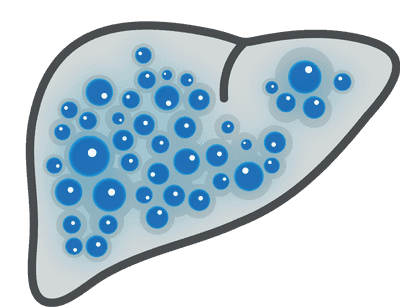Advances in Cirrhosis Treatment: What's New in Liver Care
Blog

Cirrhosis is a serious condition where healthy liver tissue is replaced by scar tissue, limiting the liver’s ability to function correctly. While cirrhosis has long been viewed as irreversible, advances in liver care are transforming how this disease is managed and offering new hope to patients.
At NYGA, we combine evidence-based treatments with personalized care to help patients with cirrhosis. live longer, healthier lives.
Understanding Cirrhosis and Its Impact
Cirrhosis develops gradually, often after years of ongoing liver damage. As scar tissue builds, it blocks blood flow through the liver and reduces its ability to process nutrients, filter toxins, and produce proteins essential for blood clotting and digestion.
Common Causes and Risk Factors
The most frequent causes of cirrhosis include:
- Chronic alcohol use
- Viral hepatitis (especially hepatitis B and C)
- Nonalcoholic fatty liver disease (MASLD)
- Genetic or autoimmune conditions
Other risk factors may include obesity, uncontrolled diabetes, and long-term use of certain medications. With early cirrhosis often being silent, many patients are diagnosed only when symptoms, like fatigue, jaundice, or abdominal swelling, become more noticeable.
Breakthroughs in Cirrhosis Treatment
Traditionally, treatment for cirrhosis focused on slowing disease progression and managing complications. Today, however, new approaches are offering better outcomes. Advances include:
- Antiviral therapies: Highly effective medications for hepatitis B and C can now prevent further liver damage and, in many cases, halt cirrhosis progression.
- Medications targeting fibrosis: Research is underway to develop drugs that may reverse liver scarring by reducing inflammation and promoting regeneration of liver cells.
- Improved liver transplant outcomes: For patients with advanced disease, liver transplantation remains a life-saving treatment. Advances in surgical techniques, organ preservation, and post-transplant care have improved survival rates and quality of life.
Innovative Liver Care Approaches
Cirrhosis care is no longer one-size-fits-all. Innovative strategies now focus on addressing the unique needs of each patient.
Lifestyle and Nutritional Interventions
Managing cirrhosis requires a comprehensive approach to lifestyle and diet:
- Limiting alcohol completely
- Following a balanced, nutrient-rich diet
- Reducing salt intake to help prevent fluid buildup
- Incorporating regular exercise to manage weight and improve metabolic health
NYGA’s gastroenterologists work closely with registered dietitians to provide personalized nutrition plans that support liver health and overall well-being.
Personalized Treatment Plans
Every patient’s journey with cirrhosis is unique. Some may need regular imaging to monitor liver cancer risk, while others require medications to manage complications like portal hypertension or hepatic encephalopathy. By utilizing advanced imaging, liver elastography, blood testing, and genetic screening, physicians can develop individualized treatment plans that adapt as the disease progresses.
The Future of Cirrhosis Treatment and Liver Care
The field of hepatology continues to evolve. Clinical trials are exploring new antifibrotic drugs that may one day repair existing scar tissue. Advances in non-invasive imaging, such as elastography, are making it easier to monitor liver health without biopsies. Expanding access to earlier screening and preventative care may help more patients avoid cirrhosis altogether.
While cirrhosis is a serious diagnosis, treatment has advanced significantly in recent years. With a combination of medical therapies, lifestyle changes, and personalized care, many patients can manage cirrhosis effectively and reduce complications.
At NYGA, our gastroenterologists are committed to bringing our patients the latest liver care innovations. If you have cirrhosis or are at risk, schedule a consultation today to take the next step toward protecting your liver health.
Don’t wait—prioritize your health today.
